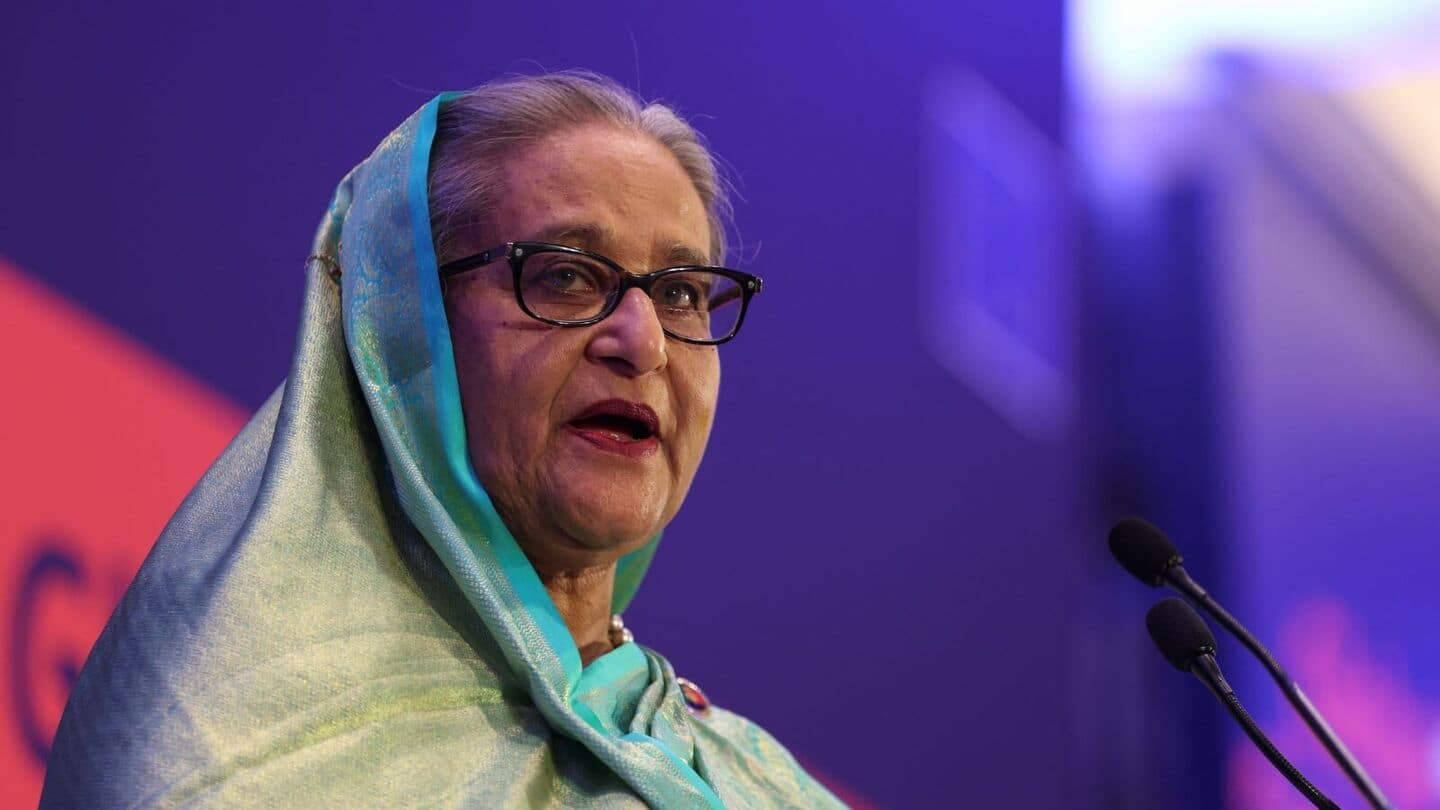
Why India is unlikely to return Sheikh Hasina to Bangladesh
What's the story
Bangladesh has requested India to extradite former Prime Minister Sheikh Hasina after a court in Dhaka sentenced Hasina to death for crimes against humanity over her government's crackdown on student-led protests last year. She has been living in exile in India since last August. Bangladesh's Foreign Ministry made the request, saying it is a "mandatory obligation" under their existing bilateral extradition treaty. The ministry warned that harboring convicted individuals would be an "unfriendly act" and a violation of justice.
Extradition treaty
India's response
India's Ministry of External Affairs responded to the extradition request, saying it "has noted the verdict announced by the International Crimes Tribunal of Bangladesh concerning former Prime Minister Sheikh Hasina." "As a close neighbor, India remains committed to the best interests of the people of Bangladesh, including in peace, democracy, inclusion and stability in that country. We will always engage constructively with all stakeholders to that end," the MEA said.
Treaty details
Extradition treaty and India's discretion
The India-Bangladesh extradition treaty, signed in 2013 and amended in 2016, requires dual criminality for extradition. Although Hasina's conviction meets the minimum procedural condition for extradition, India has the discretion to deny extradition if the charges are politically motivated or unjust. Article 8 of the treaty allows refusal if the accused proves that extradition would be "unjust or oppressive." According to Article 6 of the treaty, extradition can also be refused if the offense is of a "political nature."
Legal provisions
India's Extradition Act and grounds for refusal
Furthermore, Section 29 of India's Extradition Act, 1962, empowers the government to deny extradition if it appears trivial or politically motivated or if the extradition is not in the interest of justice. The law also allows the Centre to stay proceedings "at any time" or discharge the person sought. This gives India significant discretion in deciding whether to extradite Hasina or not.
Rule
What geopolitical analysts are saying
A number of geopolitical analysts also say they cannot see a situation in which New Delhi hands over the former prime minister to Bangladesh. Political analysts told Al Jazeera that an exception exists in the extradition treaty in cases in which the offense is "of a political character." "India understands this [Hasina's case] to be political vindictiveness of the ruling political forces in Bangladesh," JNU professor Sanjay Bhardwaj said. For India, Bhardwaj said, Bangladesh is today ruled by "anti-India forces."
View
'Hasina's presence in India would continue to remain a thorn'
Bangladesh interim government's head Muhammad Yunus and leaders of the protest movement that ousted Hasina have often criticized New Delhi for sheltering Hasina. In this context, "handing over Hasina would mean legitimizing" people opposed to India, Bhardwaj said. Another analyst, Michael Kugelman, based in Washington, DC, said Hasina's presence in India would continue to "remain a thorn in the bilateral relationship" but enabled "India to stay true to its pledge to remain loyal to its allies."